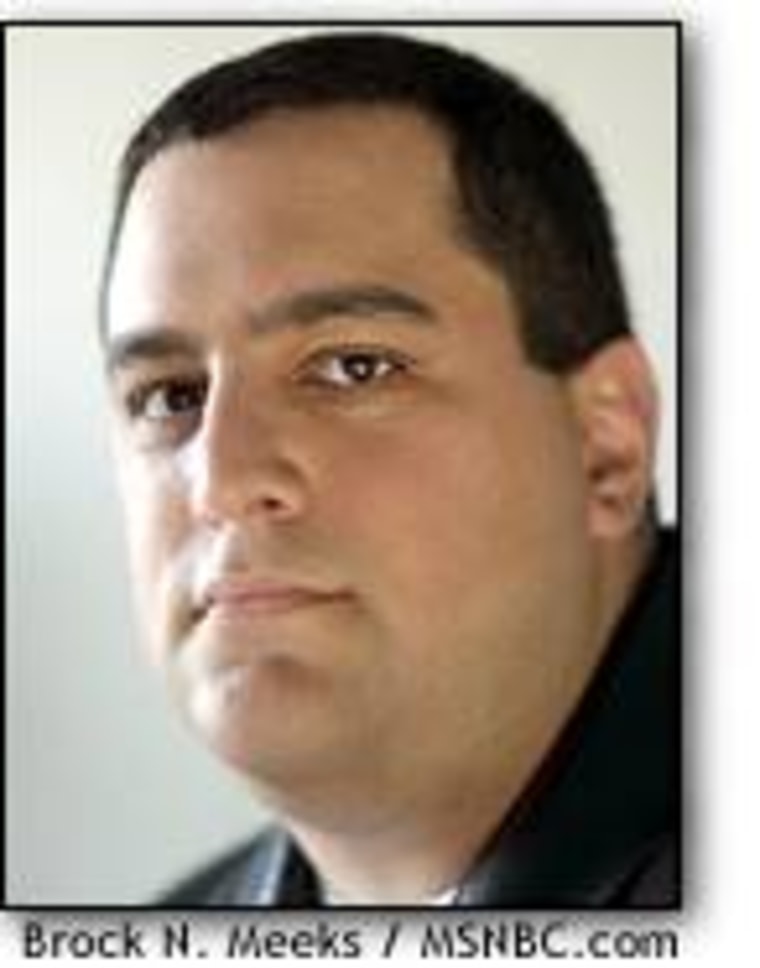Eight months after terrorism leapt from the tall grass of America’s innocence, the tragedy of Sept. 11 is literally coming home to roost. Residents in five states have started receiving notices saying their homeowner’s policies no longer cover damage related to acts of terrorism.

FOR THE VAST MAJORITY of Americans, the events of 9/11 were deeply emotional; now it’s getting personal.
Richard Forno, an author and Internet security expert, was hundreds of miles from New York on Sept. 11 but still found himself victimized by the tragedy’s aftermath. When Forno received his recently renewed insurance policy for a Ft. Lauderdale, Fla. condo it contained an unexpected exclusion of coverage for acts of terrorism.
Making matters worse: Florida is one of only five states that have passed laws prohibiting insurance companies from excluding terrorism coverage. However, Forno’s coverage comes from Lloyd’s of London, which isn’t regulated by the state and therefore is allowed to write policies offering the exclusion.
“If my place was in a ‘high risk area’ such as across from the White House, Capitol, or other major target of opportunity for an adversary, I’d certainly expect it to be part of my coverage, even if it cost a tad bit more to have,” Forno said. But because his condo isn’t in an area that’s a “target of opportunity” he said he isn’t particularly concerned.

Homeowners near so-called “trophy” properties in the Washington, D.C. area haven’t been notified, so far, that terrorism will be excluded from their coverage.
“There is no specific exclusion for terrorism on the personal line,” said Joe McCormick, field corporate relations manager for Allstate Insurance in the Washington region. Nor has he heard that any other company plans to exclude terrorism from their personal property policies.
Even for the multi-million dollar homes in the tony developments of Potomac and Mclean, Va., which are in the flight paths of several high profile target properties, such as the White House and headquarters of the CIA, McCormick said he hasn’t heard of any outrageous increases in homeowners’ premiums nor has he heard of any cancellations or terrorism exclusions.
HEARTLAND FEELS THE STING
Insurance companies in Arizona, Colorado, North Dakota, South Dakota and Kentucky have received approval from state regulators to exclude terrorism coverage from their homeowners’ polices, said Dave Dasgupta of Insurance Services Office, a Jersey City, N.J.-based supplier of information about the property/casualty insurance industry.
Homeowners in those states are beginning to receive notices that their policies will exclude terrorism coverage.
Since 9/11 the insurance industry has been heavily lobbying Congress to pass federal backstop legislation that would protect them against financial ruin in the event of future terrorist attacks. The estimated cost of 9/11 is upwards of $40 billion. Because of that the reinsurance market — those companies that insure the primary insurers such as Allstate, Liberty Mutual, Fireman’s Fund and others — has shrunk.
Besides Florida, California, Texas, New York and Georgia don’t allow commercial insurance exclusions for terrorism. So far only fives states have approved the exclusion for personal property but regulators in all other states could still pass the exclusions, said ISO’s Dasgupta.
The move to specifically exclude acts of terrorism from a homeowners’ policy is particularly disconcerting, given the fact that all policies cover such damage as a matter of course, said Thomas Caesar, partner Caesar & Seidar, a Santa Monica, California-based independent insurance broker that is part of the Talbot Insurance Group.
“Terrorism coverage itself is part of the basic insurance policy,” Caesar said. “Whether it’s homeowner’s or commercial property, the basic policy forms include vandalism, malicious mischief, insurrection, rioting, civil commotion, they are covered, identified in the policies,” he said. “I don’t care if it’s State Farm, Allstate or Fireman’s Fund — all of the standard forms automatically will include damage resulting from terrorist acts.”
Even though the word “terrorism” won’t be found in a common homeowner’s insurance policy, terrorism “is an act of violence and is covered broadly under acts of violence,” Caesar said.
To make matters worse, the definition of what constitutes “terrorism” is written in the fraccia obfuscaddo of the insurance industry. Here’s a typical example:
“Terrorism means the use or threatened use of force or violence against person or property, or commission of an act dangerous to human life or property, or commission of an act that interferes with or disrupts an electronic or communication system, undertaken by any person or group, whether or not acting on behalf of or in any connection with any organization, government, power, authority or military force, when the effect is to intimidate, coerce or harm a government, the civilian population or any segment thereof, or to disrupt any segment of the economy.”
“Does a group of teenagers out for kicks spray painting graffiti political messages on my driveway count as ‘actions to influence political actions,’” asks Forno, reading from his own policy’s definition of terrorism, “as opposed to my place being affected by the al-Qaida truck bomb in front of the target-of-opportunity across the street from me?”
InsertArt(1471187)State regulators, too, are wary of such ambiguity. Such broad definitions could include “any threat to commit physical assault, stalking, or even a teenager’s act of hacking into a public school’s computer system to alter their transcript could be considered a terrorist act,” said Mike Kreidler, insurance commissioner for Washington in a statement. “Some of the definitions of terrorism we are seeing are completely unreasonable,” Kreidler said. “It’s crucial that terrorist acts not be defined in ways that would effectively harm the businesses and consumers of our state.”
TERRORISM’S BOTTOM LINE
In New York alone there are 727,437 apartment and condo buildings, according to the state’s Real Estate Board. The estimated replacement cost of those dwellings: $127 billion.
Insurance rates for residential properties were already increasing dramatically before Sept. 11, said Jay Harris, spokesman for the National Multi Housing Council, a trade group representing apartment owners.
“The trends we have been seeing include 100 percent increases year-over-year in (insurance) rates and five and ten-fold increases in the deductible amounts,” Harris said. “Sept. 11th exacerbated that, especially with respect to terror coverage, but the overall trend of rising rates was going on well before Sept. 11th.”
Insurance premiums on large condo buildings — worth in excess of $80 million — is increasingly difficult to buy, said James Carroll, vice president of the condominium risk management division at Near North Insurance brokerage, which operates out of Chicago. “Premiums are going up 300 to 400 percent in some cases,” Carroll said.
Those higher premiums are the passed on to the individual condo owners, Carroll said. In many cases the board of directors for a condo building find themselves having to pass special assessments to pay for the increases, Carroll said. In Chicago, condo owners are finding themselves paying $250-$300 more per year as a result of increases tied to terrorism coverage, Carroll said.
Adding to the anxiety is that although terrorism coverage is available the after-effects of the initial act, for example the “fire following the act” might not be covered, Carroll said. “So to go to the World Trade Center example, the hole that the airplane put in the building would be covered but the fire that followed afterward would not be covered.”
The good news in all this: most homeowners have felt no financial impact on their insurance rates as a result of 9/11 owing to what independent insurance broker Caesar calls the “law of large numbers.”
On average, rates for homeowners’ insurance policies have risen “somewhere in the neighborhood of six to nine percent,” said Caesar. “Yet how directly it is linked to 9/11 is smoke and mirrors,” he said.
“The consensus is, for the homeowner, for the personal insurance consumer that has a home or apartment, a car or two, maybe has a few toys — as jet ski, a boat — their numbers are so great they can shoulder the responsibility (of increased coverage) with just a modest single digit increase,” said Caesar.
“And what’s happened on the other side as you go up a step in the chain is that the commercial property owners, in the urban areas, are the ones picking up the brunt of the 9/11 results.”